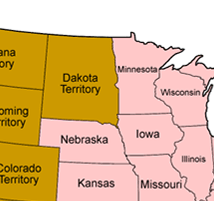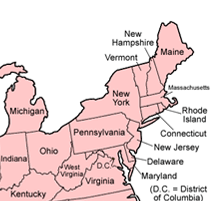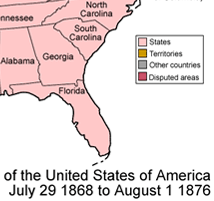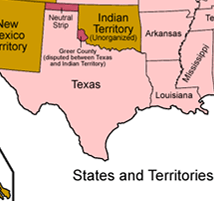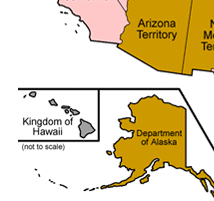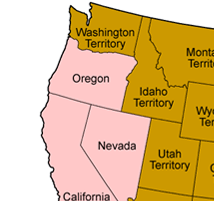Incorrect
1)
Presidential Reconstruction
I Interactive popup. Assistance may be required.
Abraham Lincoln
supported a lenient Reconstruction that would begin the process of readmitting the states when 10% of the voting population in 1860 took a loyalty oath. Upon Lincoln's death, Vice President
Interactive popup. Assistance may be required.
Andrew Johnson
, continued this lenient policy, but he raised the required percentage of the voting population to take a loyalty oath to 50% and required states to ratify the 13th Amendment, which ___________________________.
2) Presidential Reconstruction II President Johnson's Reconstruction plan did not go well. Many Southern whites continued to oppress freed slaves through laws called
Black Codes
that made freedmen second class citizens. There were many incidents of racial violence, including a riot in New Orleans. Finally, Johnson vetoed laws aimed at providing assistance to the former slaves, especially the
Freedman's Bureau
. All of this led to a group getting a veto-proof majority in Congress called the _____________________.
3) Radical/Congressional Reconstruction After the Radical Republicans swept the Election of 1866, they imposed a much harsher Reconstruction policy on the South, dividing it into five military districts through the
Reconstruction Act of 1867.
They also required the ratification of the 14th amendment, which ___________________. Additionally, they impeached Johnson, and the President survived removal from office by just one vote.
4) Progress Through organizations like the Freedman's Bureau and the active protection of the U.S. military, African Americans improved their social and economic standing considerably under Congressional Reconstruction. Families split apart by slavery were reunited. Churches grew strong. Many freedmen learned how to read and write as they pursued their own economic future. Many people got elected to political office, especially Hiram Revels who became _______________________________.
5) Setbacks Gradually though, the military's hold on the South lessened as states met the criteria to rejoin the Union. Many African Americans found themselves in terrible poverty and debt by entering into contracts with plantation owners in a system called ______________. Under this system, they agreed to work the land and give half of their crops to the land owner. Also, a very infamous terrorist organization emerged called the _____________________ that frightened African Americans away from exercising their rights.
6) End of Reconstruction During the 1870s, the North grew tired of Reconstruction. The Panic of 1873 helped send the economy into a depression. Numerous scandals rocked the administration of President Ulysses S. Grant. In the presidential election of 1876, the anti-Reconstruction candidate, Samuel Tilden, won the popular vote over Republican Rutherford B. Hayes. However, there were disputes about some states' electoral votes. As part of the Compromise of 1877, Hayes received all of those electoral votes making him president, but the Republicans agreed to _________________________, effectively ending Reconstruction.
Well Done!
 supported a lenient Reconstruction that would begin the process of readmitting the states when 10% of the voting population in 1860 took a loyalty oath. Upon Lincoln's death, Vice President Interactive popup. Assistance may be required.
supported a lenient Reconstruction that would begin the process of readmitting the states when 10% of the voting population in 1860 took a loyalty oath. Upon Lincoln's death, Vice President Interactive popup. Assistance may be required.
 , continued this lenient policy, but he raised the required percentage of the voting population to take a loyalty oath to 50% and required states to ratify the 13th Amendment, which ___________________________.
, continued this lenient policy, but he raised the required percentage of the voting population to take a loyalty oath to 50% and required states to ratify the 13th Amendment, which ___________________________.
